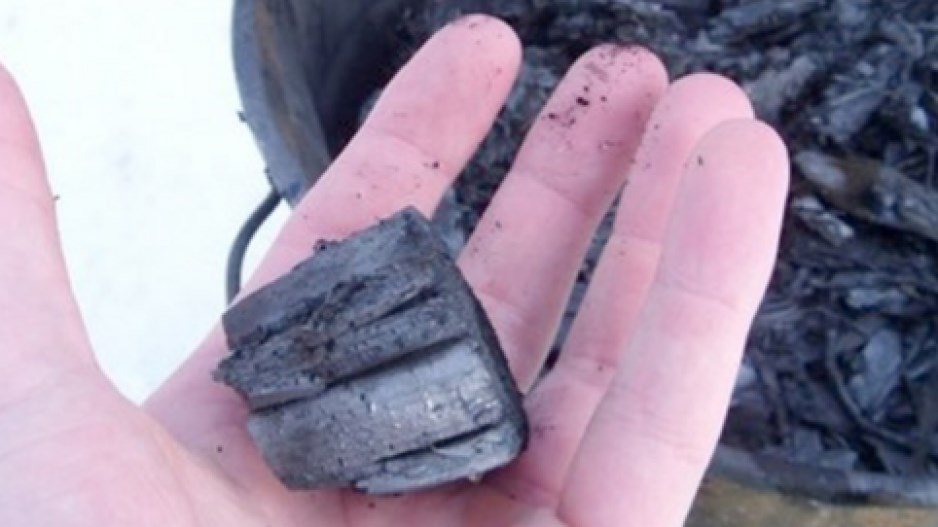A British Columbia researcher is making a case for establishment of a provincial biochar industry that could lead to a massive reduction in the province's greenhouse-gas emissions.
Biochar is a renewable fuel created by burning biomass, or waste wood. And Geoff de Ruiter of the University of Northern British Columbia said it could be a substitute for some of the coal and natural gas burned in B.C. to power mills and other industrial enterprise, resulting in a 22% reduction in emissions.
Biochar is considered a low-carbon renewable fuel because, rather than introducing more carbon to the atmosphere (as burning fossil fuels does), it releases carbon that would have been emitted if the biological feedstock had naturally biodegraded. It is most commonly known as a product that can store carbon and improve soil quality, but can substitute for coal in electricity or heat production.
De Ruiter and other researchers put forward the biochar case in a white paper released Thursday by the Pacific Institute for Climate Solutions.
"B.C. has enough excess forest residue and wood waste to create five million tonnes of biochar per year, which would account for 270% of the province's internal coal usage," de Ruiter said. He said substituting that amount of biochar for coal or natural gas could drop greenhouse-gas emissions by 22%, which would take B.C. two-thirds of the way toward its legislated emissions-reduction target of at least 33% below 2007 levels by 2020.
In an interview, de Ruiter said the paper explores where the industry can be taken, though he is quick to note it does have hurdles to overcome, such as the cost of production and access to biomass.
"I will say there are some challenges when considering economics," he said, noting biochar is not competitive with coal. "It's not necessarily cost-competitive, but that is depending on what you place as a value on the environmental and social impacts of fossil fuels."
He said he is advocating for a significant increase in the province's carbon tax. "If you internalize all the external costs of fossil fuels through a carbon tax, it would be cost-competitive.
"We already do that with cigarettes and alcohol, which have strong social and health impacts."
As for access to the fuel to create biochar, the study notes affordable biomass such as the residue wood from mills is limited in supply as much of it is used to create wood pellets, leaving the option of high-cost fuel such as residue from logging operations.
De Ruiter is hoping it doesn't turn out to be an us-or-them situation with the pellet industry and other players in the bioenergy field.
To that end, the white paper recommends provincially funded research, changing policy and regulations including a significant increase in the carbon tax, and pulling together all stakeholders to lay out a new bioenergy strategy.
De Ruiter said there are researchers and companies working on a range of biochar applications.
"They are all trying to target different industries and I think there is opportunity for all of them, but we need a co-ordinated effort with government," he said.
"I would at the very least like to see a roundtable discussion including government, industry and academia to at least plan the bioenergy strategy over the next 10 to 20 years," he said.
The B.C. Bioenergy Network said the paper backs up its assertion biochar has a role to play in reducing greenhouse-gas emissions.
"We are pleased that this white paper supports our view in deploying biochar technologies. We are hopeful to see commercial demonstration of a biochar plant at a site in B.C. very soon," said network executive director Michael Weedon. "The resulting economic, environmental and social benefits will re-enforce the recommendations in the white paper."
© Copyright Times Colonist




